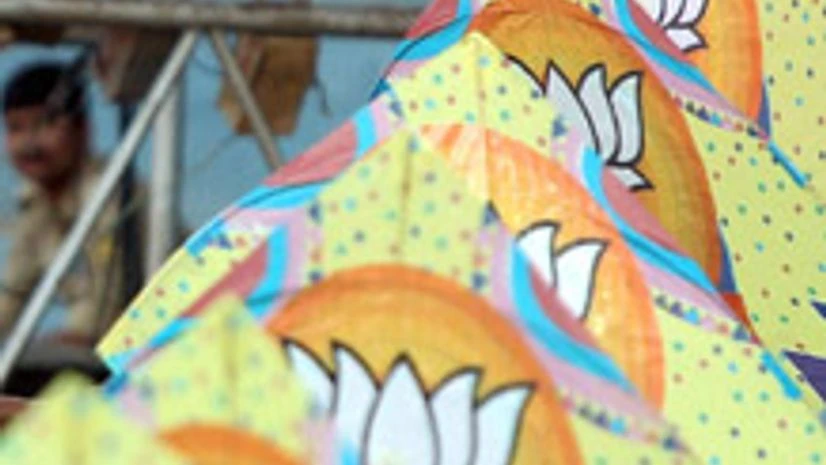The Bharatiya Janata Party (BJP) -led National Democratic Alliance (NDA), if it came to power after the Lok Sabha elections, would have promotion of the manufacturing sector as its priority, said BJP President Rajnath Singh at the party’s national council meeting on Saturday.
He said his alliance’s government would aim to increase the share of manufacturing in India’s gross domestic product (GDP) from the current 15-16 per cent to 20 per cent. According to him, the country’s current account deficit (CAD) has widened because manufacturing has been ignored.
The BJP president said his government would make the country’s taxation system less complicated but did not mention any proposal to do away with all major taxes and bring a bank transaction taxation, a move his party is said to be considering. Other party leaders said BJP had decided to drop the proposal but Singh said his government would “provide substantial relief to income-tax paying middle class”.
More From This Section
Rajnath Singh, who was the Union agricultural minister during Atal Bihari Vajpayee’s government, said his alliance would implement a ‘farm-income insurance scheme’ if it came to power at the centre. He proposed, under this scheme, each farmer would be guaranteed a minimum income to be calculated on the basis of the size of his farm.
Though Singh talked of mismanagement on the fisc front, it appeared from his speech that subsidies to the farm sector were unlikely to be cut by a future BJP government. On the contrary, Singh suggested the farmers were being underpaid and exploited, and that the minimum support price for their crops would be increased.
“We will give farmers the right price for their produce... We will ensure the loan a farmer takes does not become a burden. So, the rate of interest at which loans are given to farmers will be reduced,” Singh said.
| WAR OF PROMISES |
THE CONGRESS RESOLUTION
|
Further, the party talked of at least two schemes that could have huge revenue implications. First, Singh announced his party would bring a ‘right to health’ for the poorest of the poor. Second, it would provide employment to at least one member of every family.
BJP has generally opposed foreign direct investment (FDI) in the insurance and retail sectors. But there was no mention of the party’s FDI stance on Saturday.
Instead, Singh announced that Kisan bazaars - where farmers could directly go and sell their produce, bypassing middlemen - will be set up.
"The UPA government is opening many sectors for FDI without much deliberation or consultation. Recently, the Centre opened even the railways, which is a 100 per cent government enterprise, to FDI. Before taking such key economic policy decisions, Parliament and the Opposition should have been informed. But the government is taking unilateral decisions. This tendency of taking hurried decisions without consulting major stakeholders is also affecting the process of disinvestment," Singh said.
The BJP president criticised Prime Minister Manmohan Singh's government for seeking a most-favoured-nation status from Pakistan. He said his government would ensure this strategy was dropped and advocated improving cross-border trade with Myanmar.

)
